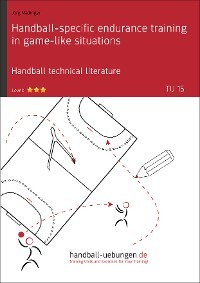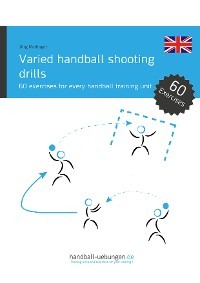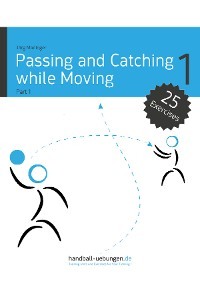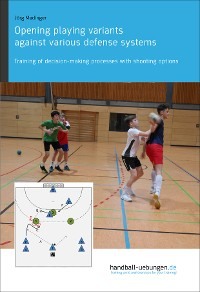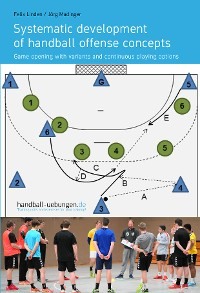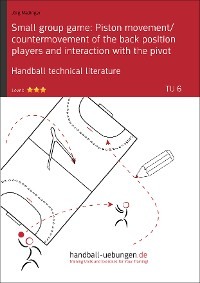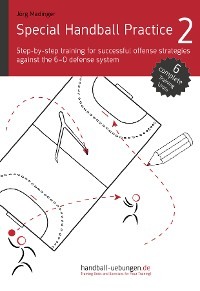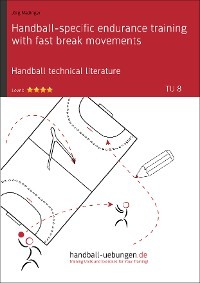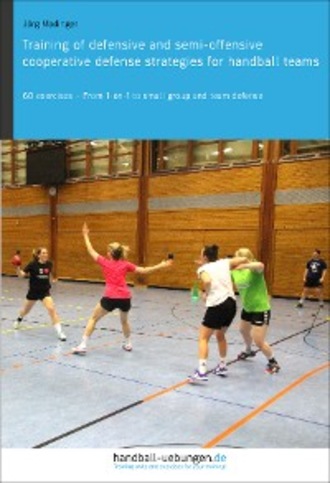
Полная версия
Training of defensive and semi-offensive cooperative defense strategies for handball teams
- The players make teams of three; each team has one cone and one ball.
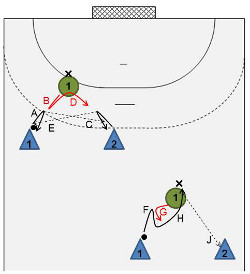
Course:
-


-


-


- Afterwards, the players repeat the piston movement and

- The players keep repeating the piston movement until one of them bounces the ball (

-



- If







- Afterwards, the three players switch positions and the course starts over.






No. 12: 1-on-1 exercise with fast adjustment and without a ball
Difficulty level:


Minimum number of players: 9
Equipment required: 1 pole, 1 bib, and 1 handball per group of 3
Setting:
- The players make teams of three.
- Each team of three plays at a pole.
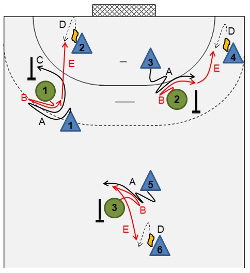
Course:
- One player starts as defending player, one as attacking player. The third player stands near the pole at a short distance and holds a bib.
- Upon the coach’s whistle, all attacking players start the course in parallel:
-



- As soon as one attacking player has touched the pole (C), he calls out “STOP”.
- “STOP” is the sign for the players standing next to the poles (



Конец ознакомительного фрагмента.
Текст предоставлен ООО «ЛитРес».
Прочитайте эту книгу целиком, купив полную легальную версию на ЛитРес.
Безопасно оплатить книгу можно банковской картой Visa, MasterCard, Maestro, со счета мобильного телефона, с платежного терминала, в салоне МТС или Связной, через PayPal, WebMoney, Яндекс.Деньги, QIWI Кошелек, бонусными картами или другим удобным Вам способом.


